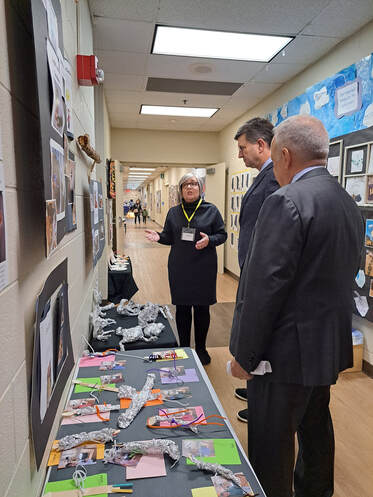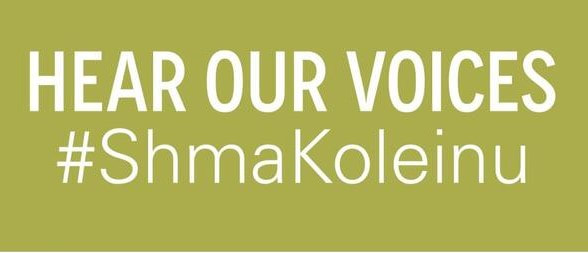|
“Let’s get this message out,” championed Congressman Brad Schneider (IL-10) during a recent visit at the Bernard Weinger JCC Early Childhood program, coordinated by JUF’s Jewish Early Childhood and Government Affairs teams. The message: early childhood care and education requires robust, long-term federal funding.
After a heartwarming morning with young students and talented educators, Congressman Schneider asserted that “education is necessary for the future” and solving the child care crisis is a “priority.” Our visit with Congressman Schneider reaffirmed that early childhood advocacy is successful when families join to share their experiences and challenges. During the visit, a long-time JCC parent and active leader in the Family Involvement Group (FIG) shared her family’s experience and why consistent, reliable, high-quality care is critical for young children and their families. Her captivating words underscored how the expertise of educators, partnerships with social services, and relationships with other families creates a safe and enriching community for her family. The stories about the central role of the JCC early childhood program in her life inspired deep conversations about the need for greater federal investments in child care. In conversations with policymakers, family stories achieve 3 things: The 3 E's.
1. Enliven data Data is powerful for identifying specific challenges facing the child care industry. Prominent early education and child care organizations have put forth compelling reports about the progress toward fixing this broken system. But, numbers are not enough; compelling narrative data that captures personal, human experience, as these reports include, is critical for affecting change. As advocates, we must appeal not only to the mind but to the heart. Personal accounts about the impact of the pandemic on families’ employment, child care options, mental health, and children’s development give life to numbers and allow for decision-makers to be more emotionally invested in the issue. 2. Expand the scope Stories not only illuminate an individual’s lived experiences but can provide broader, community level insights about how child care is a needed infrastructure. As the JCC parent told stories about her own child’s experience, she seamlessly integrated various perspectives from other families, educators, and community members. In doing so, she reminded the Congressman that consistent, high-quality early childhood education is not just something “nice” or “helpful” in her family’s life, but a societal and economic necessity. 3. Encourage action The true power of stories is their potential to inspire action. We cannot just equip our elected officials with qualitative and quantitative data without articulating what do with it! Our stories provide reflections on what works and what doesn’t work, what has happened and what can be. Through our stories we can urge policymakers to support specific actions and consider us their partners on the path toward change. 
A few days after our visit, Congress passed the much-anticipated year-end spending bill with a $2.8 billion increase for child care and early learning programs Notably, the bill included a 30% increase- over $8 billion dollars- for the Child Care and Development Block Grant, which helps working families secure much needed child care for their young children. But more ongoing federal and (state level) investments are needed to support this crucial infrastructure. As the 118th Congress convenes, now is the ideal time to strengthen our relationships with elected officials and maximize the current bipartisan support for early childhood care and education. Now is the time to center family voice and tell our stories.
Ilana Dvorin Friedman
Early Childhood Policy Analyst, JUF Chicago Comments are closed.
|
Categories
All
Archives
March 2023
|


 RSS Feed
RSS Feed